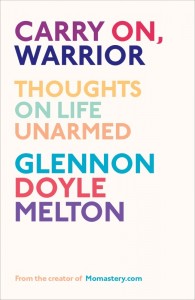April's end is fling-wide-the-windows
coffee on the porch
lunch al fresco and
honest to goodness dandelion-and-dogwood
Spring, God be praised.
Resurrection smells of fresh mown grass,
tastes sweet as blueberry ice cream.
We dig out bikes from the shed
and the dirt in the garden, sinking
bean poles that reach for the sky.
A new trail opens, we tie on sneakers and
emerge from hibernation. Stretching limbs we blink and
breathe in this new day, its dawning grace.
---
Western Pennsylvania winters encroach on fall and spring like choking vine. On my mopiest days, I am certain that we endure but two seasons here, Summer Camp and The Winter Of My Discontent, but the proof is in the pictures and the skip in my step today.
Spring has sprung. (Leeeeeaaaaaves!!!)
I'm playing along with HopefulLeigh's monthly What I'm Into link-up. This April I'm also down with:
- Morel mushrooms. Jim's been foraging, and we cook 'em in butter and garlic and YUM.
- Chickens pecking about. (Less down with the fox who ate one just off our deck, though.)
- Three little piglets at the neighbors' house.
- Grilling season.
- Renew & Refine Retreat for Writers. I'm so excited to spend time learning and writing and having a little fun before summer camp wreaks its havoc. (And it's not too late to spend Memorial weekend with us...The code BREATHE gets you $25 off.)
- Mad Men. I still love that and Scandal. (There doesn't seem to be a lot else one right now, is there?) I mainlined two season of AMC's The Killing on Netflix in an embarrassingly short amount of time, and it's coming back for a third season soon. Jim thought it was slow, but I was hooked on the characters, emotional depth, and mystery.
- You already know I've been reading Bread & Wine, Carry On, Warrior, What It Is Is Beautiful, and The Mermaid of Brooklyn. I'm also reading (and LOVING) The Prophetic Imagination, but more on that another time--or better yet, head over to Kelley Nikondeha's for a week's worth of reflections.
- I used a birthday gift certificate to buy a weighted hippie-made hula hoop with fiery stripes. It seemed like the right thing to do.
- Library story hour. I drop both kids off on Wednesday mornings for one glorious hour in which they are thoroughly charmed and I am blissfully uninterrupted. Magic, I tell ya.
- The kiddos are turning a corner. It's part timing and all grace, but we're hitting a stride. Dylan's not Too Old, and James isn't Too Little. We're out of diapers and babyhood but not yet in school, a fun place where they're little and "big" at all once, and they really are best friends. Hallelujah and Amen.
(an ongoing record of God's goodness, #400-423)
What's catching your eye and capturing your heart of late? (100 points for knowing to what my post title alludes.)













